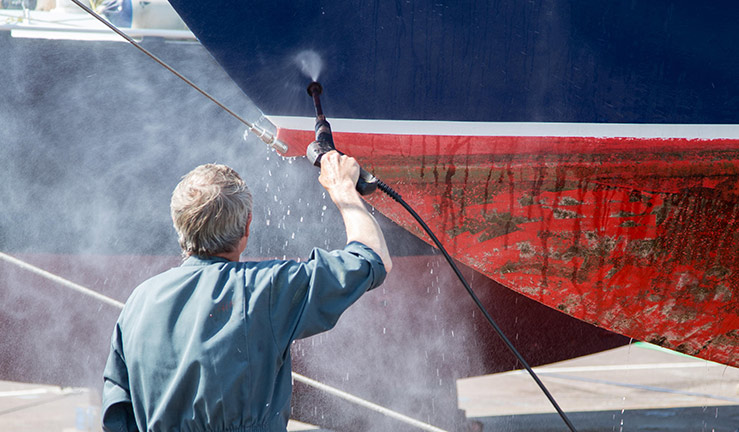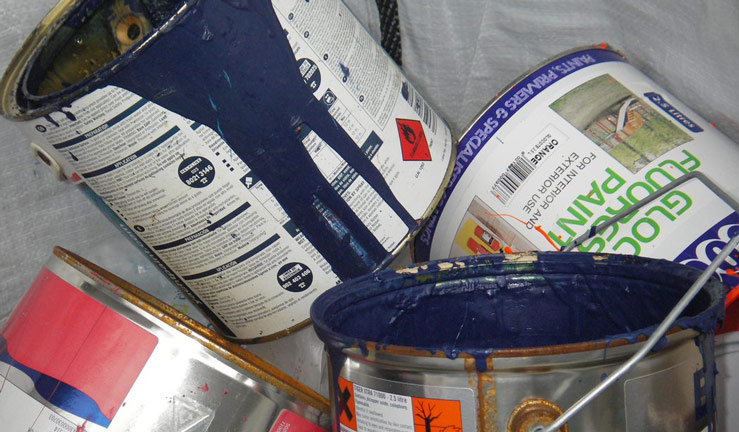Greener boating
You can help protect the marine environment on any budget

There are lots of actions we can take onboard that protect the environment and don’t reduce our enjoyment of the water. Below are a few ideas from the RYA’s environment programme, The Green Blue, to help get you started.
Low budget £
Your boat’s engine could be dripping oil without you realising. By placing a drip tray under your boat’s engine, it will collect any unexpected leaks. If it gets oily, simply find, and mend the leak.
Considering a spring clean? Donate any unwanted sail cloth or rope to organisations or people that like to give an item a new lease of life by upcycling.
When carrying out anti-foul maintenance on your boat, be aware of your surrounding environment. Remember to always follow the Protect, Collect, Dispose process and don’t let any paint remnants pollute the local water.
Keep up to date with the latest advice in green boating and join the sustainable boating community by making your Green Blue Boating Pledge. Show your commitment to protect, respect, and enjoy the waters where you sail.

Moderate budget ££
One way to avoid water pollution from oil is by installing an in-line bilge filter. When pumping out, the filter will automatically remove any oil. The oil that is collected should be disposed of in a hazardous wate bin.
You never know when an oil spill may occur, buy a spill kit in case of accidental spills on land or water. A kit contains pads and booms, which absorb oil and fuel but not water.
Transform your onboard cleaning routine with eco-friendly onboard cleaning products. You can find a range of brands on The Green Blue business directory.
Choosing to fit sound insulation and vibration absorbers can reduce structural noise from a boat’s engine by 85 percent.
Pause before you buy. Before re-stocking on kit or equipment, think ‘would this item last for another season?’ Could you purchase the item second-hand?

Larger budget £££
Discharging raw sewage from a boat can deplete the levels of oxygen available in the water. Fitting a closed toilet system such as a holding tank or chemical toilet which can be emptied at pump station can reduce water contamination.
Every action has an incurred carbon footprint, changing to low-energy LED lighting is one way to reduce that energy usage. You could also consider installing solar panels to your vessel, allowing your boat to generate its own source of energy.
There are now many new alternatives of antifoul products available which is less environmentally toxic than traditional biocidal coatings.
You could also switch your boat to a cleaner and more reliable propulsion by going electric. Electric engines are also significantly quieter and cause less disruption to the marine life below.

Further information
Keep yourself update to date with the latest sustainable boating guidance by exploring our green boating guides.
